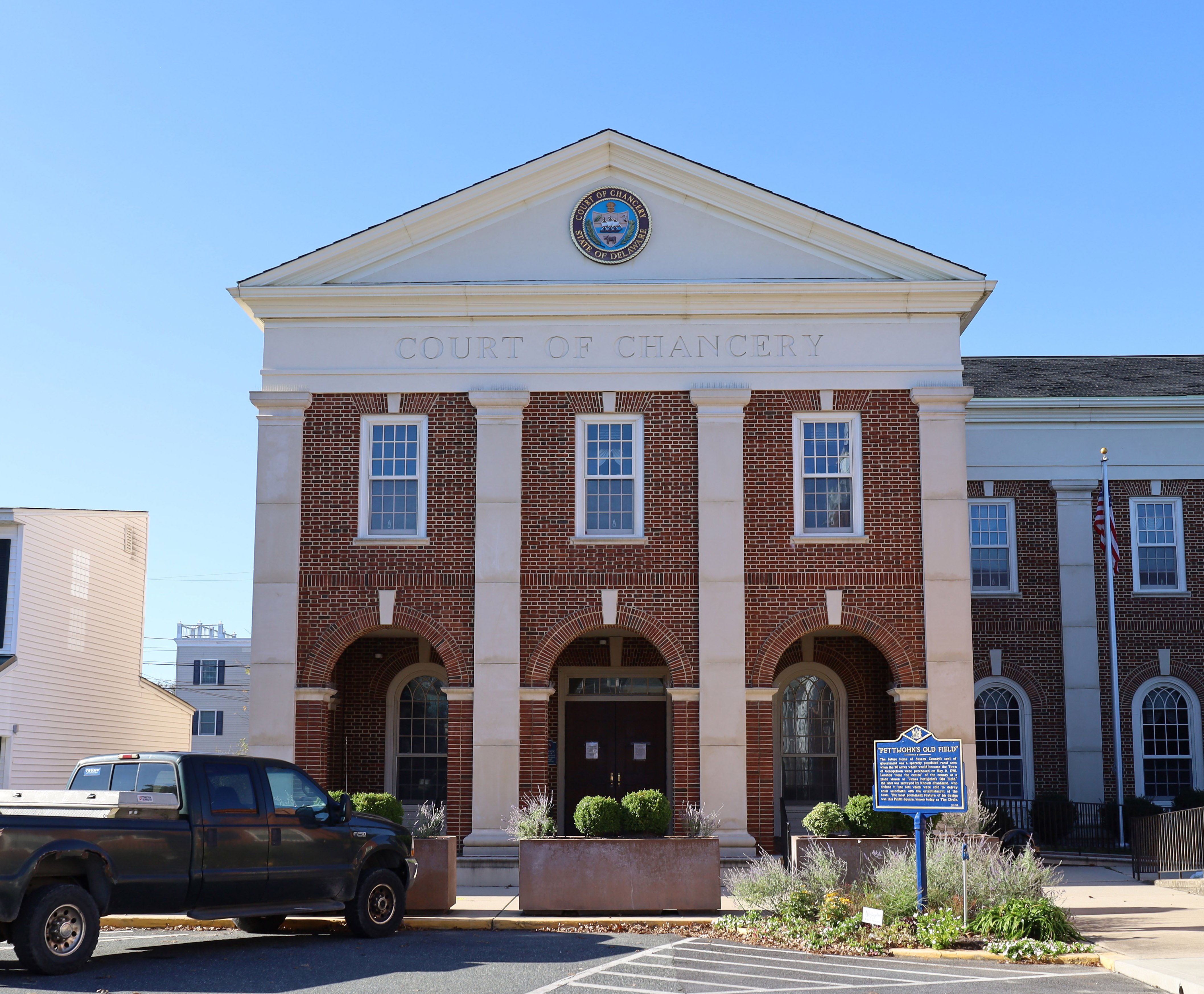 Commercial Walk in Freezers. Photo: Borkin Vadim/ Shutterstock
Commercial Walk in Freezers. Photo: Borkin Vadim/ ShutterstockDel. Superior Court Allows Case Alleging That Faulty Freezers Sent Hamburger Flying, but Dismisses Some Claims
According to the opinion issued Monday, though the freezers were installed by August 2017, they had a number of issues that kept Golden State from being able to use them as intended, including failing parts, missing systems and doors installed on the wrong side.
June 10, 2020 at 04:46 PM
4 minute read
The original version of this story was published on Delaware Law Weekly
The company that owns an Alabama hamburger plant can proceed with its negligence counterclaim involving defective freezers the manufacturer allegedly failed to fix, a Delaware Superior Court judge decided Monday.
Judge Eric M. Davis of the Delaware Superior Court determined Irvine, California-based Golden State Foods Corp. provided sufficient information for its claim that the $3.715 million freezers it agreed to purchase from food processing technology manufacturer GEA Systems North America, which is headquartered in York, Pennsylvania, had been improperly installed and maintained, with Golden State suffering losses due to the freezers launching hamburger patties around its plant.
In the same decision, six other counterclaims brought against GEA were dismissed. At a Jan. 21 hearing, the court determined Golden State could also proceed with its claim of a breach of implied-in-fact contract but not with its allegation that GEA breached its covenant of good faith and fair dealing. Two breach of contract counterclaims which GEA didn't move to dismiss are still pending.
GEA filed its Superior Court complaint against Golden State in November of 2018, alleging Golden State hadn't paid the full amount owed for three spiral freezers it agreed to purchase in 2016 to use in its hamburger patty production facility in Opelika, Alabama.
In September 2019, Golden State filed counterclaims against GEA and a third-party claim against Allianz Global Risks U.S. Insurance, alleging breaches of contract, negligence, gross negligence, fraudulent inducement, intentional and negligent misrepresentation, unjust enrichment and indemnification.
Davis determined several of those counterclaims to be barred either by the state's economic loss doctrine or by the contract between the companies, while the claim of negligent misrepresentation was dismissed because the Delaware Court of Chancery has exclusive jurisdiction in that area.
According to the opinion issued Monday, though the freezers were installed by August 2017, they had a number of issues that kept Golden State from being able to use them as intended, including failing parts, missing systems and doors installed on the wrong side. An email from Golden State executives to GEA's vice president and a project manager and engineer stated the freezers' flaws had led to hamburger patties "flying around like popcorn," and failing parts were said to have left the freezers inoperable for large parts of the 17-hour shifts for which they were supposed to be used.
GEA reportedly said it would fix the freezers but did not do so, with Golden State alleging as part of its negligence counterclaim that GEA's seven-month delay in finding solutions was done in an attempt to continue collecting payments from Golden State.
Hutchinson Robbins Jr. of Miles & Stockbridge in Baltimore, the firm that is representing GEA, said the case is proceeding in the Superior Court's complex commercial litigation division rather than in the Court of Chancery because it's a contractual dispute, not a corporate one.
In its motion to dismiss, GEA's arguments included that Delaware law, not Alabama law, should be applied in the case, while Golden State responded Alabama law should take precedent. Davis wrote that the court isn't required to conduct a choice of law analysis because there doesn't appear to be a conflict between the applicable laws in the two states.
Robbins said while it's frequent that laws from more than one state could be applied in a case, it's uncommon for one law to not be chosen.
"The allegations here were that there were multiple documents comprising one contract, and so the potential for conflict in choice of law is very real," Robbins said. "Typically, the parties have agreed upon a choice of law, and even if there are multiple components to their contract, it's going to be one choice of law that governs the whole thing."
This content has been archived. It is available through our partners, LexisNexis® and Bloomberg Law.
To view this content, please continue to their sites.
Not a Lexis Subscriber?
Subscribe Now
Not a Bloomberg Law Subscriber?
Subscribe Now
NOT FOR REPRINT
© 2024 ALM Global, LLC, All Rights Reserved. Request academic re-use from www.copyright.com. All other uses, submit a request to [email protected]. For more information visit Asset & Logo Licensing.
You Might Like
View All
Beyond Meat Faces Shareholder Suit Over Ability to Produce Product at Scale

New Derivative Suit Says Kraft Heinz Shareholders Were Misled on Post-Merger Losses
3 minute read
Supreme Court Will Again Be Focus of IP World in 2023
Trending Stories
Who Got The Work
Michael G. Bongiorno, Andrew Scott Dulberg and Elizabeth E. Driscoll from Wilmer Cutler Pickering Hale and Dorr have stepped in to represent Symbotic Inc., an A.I.-enabled technology platform that focuses on increasing supply chain efficiency, and other defendants in a pending shareholder derivative lawsuit. The case, filed Oct. 2 in Massachusetts District Court by the Brown Law Firm on behalf of Stephen Austen, accuses certain officers and directors of misleading investors in regard to Symbotic's potential for margin growth by failing to disclose that the company was not equipped to timely deploy its systems or manage expenses through project delays. The case, assigned to U.S. District Judge Nathaniel M. Gorton, is 1:24-cv-12522, Austen v. Cohen et al.
Who Got The Work
Edmund Polubinski and Marie Killmond of Davis Polk & Wardwell have entered appearances for data platform software development company MongoDB and other defendants in a pending shareholder derivative lawsuit. The action, filed Oct. 7 in New York Southern District Court by the Brown Law Firm, accuses the company's directors and/or officers of falsely expressing confidence in the company’s restructuring of its sales incentive plan and downplaying the severity of decreases in its upfront commitments. The case is 1:24-cv-07594, Roy v. Ittycheria et al.
Who Got The Work
Amy O. Bruchs and Kurt F. Ellison of Michael Best & Friedrich have entered appearances for Epic Systems Corp. in a pending employment discrimination lawsuit. The suit was filed Sept. 7 in Wisconsin Western District Court by Levine Eisberner LLC and Siri & Glimstad on behalf of a project manager who claims that he was wrongfully terminated after applying for a religious exemption to the defendant's COVID-19 vaccine mandate. The case, assigned to U.S. Magistrate Judge Anita Marie Boor, is 3:24-cv-00630, Secker, Nathan v. Epic Systems Corporation.
Who Got The Work
David X. Sullivan, Thomas J. Finn and Gregory A. Hall from McCarter & English have entered appearances for Sunrun Installation Services in a pending civil rights lawsuit. The complaint was filed Sept. 4 in Connecticut District Court by attorney Robert M. Berke on behalf of former employee George Edward Steins, who was arrested and charged with employing an unregistered home improvement salesperson. The complaint alleges that had Sunrun informed the Connecticut Department of Consumer Protection that the plaintiff's employment had ended in 2017 and that he no longer held Sunrun's home improvement contractor license, he would not have been hit with charges, which were dismissed in May 2024. The case, assigned to U.S. District Judge Jeffrey A. Meyer, is 3:24-cv-01423, Steins v. Sunrun, Inc. et al.
Who Got The Work
Greenberg Traurig shareholder Joshua L. Raskin has entered an appearance for boohoo.com UK Ltd. in a pending patent infringement lawsuit. The suit, filed Sept. 3 in Texas Eastern District Court by Rozier Hardt McDonough on behalf of Alto Dynamics, asserts five patents related to an online shopping platform. The case, assigned to U.S. District Judge Rodney Gilstrap, is 2:24-cv-00719, Alto Dynamics, LLC v. boohoo.com UK Limited.
Featured Firms
Law Offices of Gary Martin Hays & Associates, P.C.
(470) 294-1674
Law Offices of Mark E. Salomone
(857) 444-6468
Smith & Hassler
(713) 739-1250







